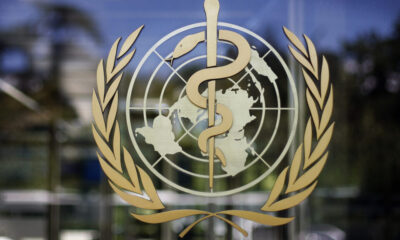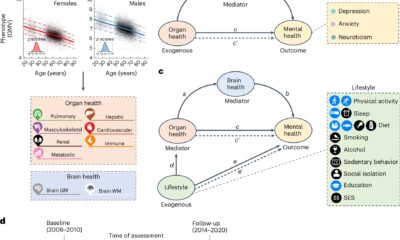Food
Public health officials in Seattle are investigating illnesses among restaurant customers

Public health officials in Washington state are investigating foodborne illness among customers of Wonder Coffee and Sports Bar.
The Public Health – King County and Seattle investigation identified two people who became infected with E. coli O121 after eating at the establishment. Both people ate foods that could make them sick, including raw or undercooked beef and other foods that could have been contaminated by raw or undercooked beef.
“While we think this is the most likely cause of how both people became ill, we don’t know for sure. We are still investigating how the beef may have been contaminated with STEC (Shiga toxin-producing E. coli),” the health department said.
The people got sick from July 12 to July 17. The public health researchers found no workers who were ill with symptoms of the same STEC strain.
On July 25, Environmental Health researchers visited Wonder Coffee and Sports Bar. Researchers have identified potential risk factors including poor handwashing facilities, improperly cleaned food processing equipment and improper separation of raw and ready-to-eat foods.
Researchers provided education on preventing the spread of STEC – including proper hand washing, avoiding bare hand contact with ready-to-eat foods, preventing cross-contamination between raw meat and ready-to-eat foods during food preparation, and ensuring restaurant staff know how to stay home if you feel ill with symptoms associated with STEC.
If restaurant workers have STEC, they should be tested further before returning to work to ensure they cannot give STEC to anyone else. No sick restaurant staff were identified during the restaurant inspections.
Environmental health investigators revisited the restaurant on July 29 to ensure proper compliance with cleaning, disinfecting and proper handwashing practices.
About E. coli infections
Anyone who has eaten at the restaurant and developed symptoms of an E. coli infection should seek medical attention and tell their doctor about their possible exposure to the bacteria. Specific tests are needed to diagnose the infections, which can mimic other diseases.
The symptoms of E. coli infections vary from person to person, but often include severe stomach cramps and diarrhea, which is often bloody. Some patients may also have a fever. Most patients recover within five to seven days. Others may develop serious or life-threatening symptoms and complications, according to the Centers for Disease Control and Prevention (CDC).
About 5 to 10 percent of those diagnosed with E. coli infections develop a potentially life-threatening complication of kidney failure known as hemolytic uremic syndrome (HUS). Symptoms of HUS include fever, abdominal pain, feeling very tired, decreased frequency of urination, minor unexplained bruising or bleeding, and paleness.
Many people with HUS recover within a few weeks, but some suffer permanent injury or death. This condition can occur in people of any age, but is most common in children under five years of age due to their immature immune systems, in older adults due to a deteriorating immune system, and in people with compromised immune systems, such as cancer patients.
People who experience HUS symptoms should seek emergency medical care immediately. People with HUS are likely to be hospitalized because the condition can cause other serious and persistent problems, such as high blood pressure, chronic kidney disease, brain damage, and neurological problems.
(To sign up for a free subscription to Food Safety News,Click here)













